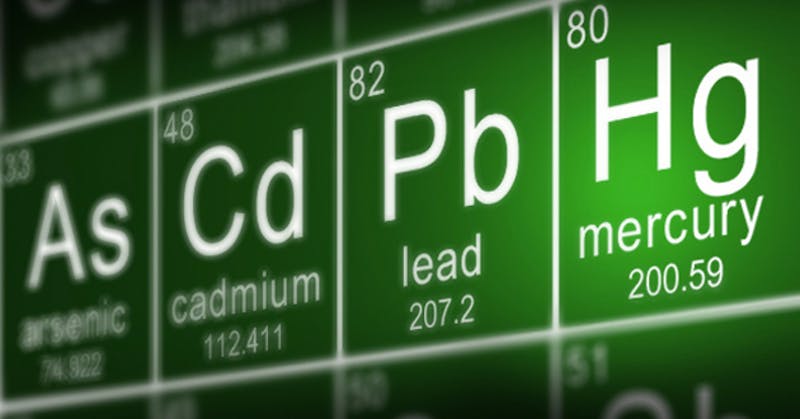USDA Grain Inspection Service Metal Contamination Testing
The United States Department of Agriculture (USDA) Grain Inspection Service is responsible for ensuring that grain and other agricultural products meet quality standards. One critical aspect of this service involves the testing of grains for metal contamination, which can pose significant health risks to consumers if not properly managed.
Metal contamination in grains can originate from various sources such as machinery used during harvesting or processing, environmental factors like soil contamination, or even intentional adulteration. The presence of heavy metals and toxic elements can lead to food safety issues that affect public health. Therefore, rigorous testing is essential to ensure the integrity and safety of grain products.
The USDA Grain Inspection Service employs a stringent set of protocols for metal contamination testing in grains. This service typically involves sampling different batches of grain based on specific criteria established by the USDA. Once collected, these samples undergo thorough analysis using advanced instrumentation such as X-ray fluorescence (XRF) analyzers and Inductively Coupled Plasma Mass Spectrometers (ICP-MS).
The testing process begins with meticulous sample preparation where grains are cleaned, dried, and ground to a fine powder if necessary. This ensures homogeneity within the sample for accurate analysis. Following this, the prepared samples are subjected to various tests that measure trace levels of metals including lead, mercury, cadmium, arsenic, and others.
Accurate identification and quantification of these elements require sophisticated analytical techniques. XRF analyzers provide quick screening by emitting X-rays onto the sample and detecting characteristic emissions from different atomic structures. ICP-MS offers higher sensitivity and precision for trace element detection. These instruments allow for precise measurement down to parts per billion (ppb) levels, ensuring no metal contamination goes undetected.
The results generated from these tests are then compiled into detailed reports that include all detected heavy metals along with their respective concentrations. Compliance officers rely on such data when making decisions regarding product safety and regulatory compliance. Quality managers use this information to adjust processing methods or sourcing strategies if necessary, ensuring only safe grain products reach the market.
Proper metal contamination testing not only safeguards public health but also protects businesses from legal risks associated with contaminated food products. By adhering to USDA guidelines and utilizing state-of-the-art equipment, laboratories like ours provide reliable results that instill confidence in stakeholders across the agricultural supply chain.
- International Acceptance: Our testing methods comply with global standards such as ISO 17025 for proficiency. This ensures our findings are universally recognized and accepted by regulatory bodies worldwide.
Eurolab Advantages
At Eurolab, we pride ourselves on delivering unparalleled quality and reliability in all our services, including USDA Grain Inspection Service Metal Contamination Testing. Our expertise lies in providing precise analytical solutions that meet stringent international standards.
We invest heavily in cutting-edge technology to ensure accurate measurements down to the lowest possible concentrations. With experienced technicians operating this equipment, we guarantee dependable results every time. Our commitment extends beyond mere testing; we also offer expert advice on best practices for minimizing metal contamination risks throughout the grain production process.
Our clients benefit from our comprehensive approach which encompasses not just testing but also consultation and training services. By leveraging our extensive knowledge base, businesses can enhance their operational efficiency while maintaining top-notch product quality standards.
Quality and Reliability Assurance
The importance of quality assurance in metal contamination testing cannot be overstated. At Eurolab, we adhere to strict quality management systems that align with ISO 17025 accreditation requirements. This ensures our methodologies are robust, reproducible, and compliant with global standards.
Our laboratories maintain rigorous calibration procedures for all instruments used during the testing process. Regular audits conducted by independent third parties further validate our commitment to maintaining high standards of precision and accuracy.
In addition to internal controls, we actively participate in proficiency testing programs organized by recognized organizations such as A2LA (Accreditation Laboratory). These assessments provide external verification of our analytical capabilities, reinforcing trust among clients who depend on us for critical decisions about their grain products.
International Acceptance and Recognition
- A2LA Accreditation: Our laboratory is accredited by A2LA under ISO/IEC 17025, ensuring our testing methods meet international standards. This accreditation guarantees the reliability of our results across borders.
- ISO 9001 Certification: Compliance with this standard demonstrates our continuous improvement efforts in quality management systems.
- IECEE CB Scheme Member: Membership allows us to participate in mutual recognition arrangements for conformity assessment, facilitating easier trade between countries participating in the scheme.





